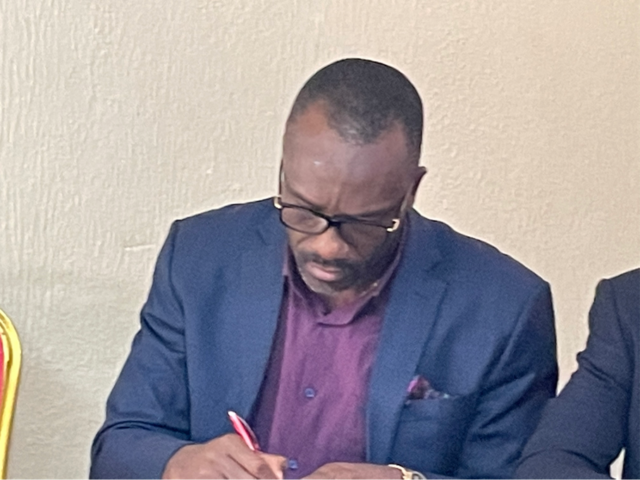
By Mark N. [email protected]
Executive Protection Service (EPS) members are now happy because what was causing dissatisfaction and mixed feelings has been laid to rest.
The officers have received about 70% of their mutual Aid fund, and those over 100 officers who had contention over salary disparity have started receiving their regular pay.”
“The Ministry of Finance has intervened in the situation of the 100 officers, and they are now taking their regular salary now,” Philip Moore, media officer at the EPS, said via a telephone interview.
He said, “70% of the mutual aid has been paid to all of the officers. Anyone who says they have not received should fiee a complaint to the management of the mutual aid program.”
TSM published a series of publications that unearthed the dissatisfaction and mixed views over salary disparity among officers who protect the President of the Republic of Liberia.
The aggrieved officers of EPS could not get their total salary equivalent to their colleagues. In contrast, those who received their real wages were dissatisfied with the mutual aid because they did not understand it.
The intention of the mutual aid was to have it disbursed at the end of the first tenure of President George M. Weah, but it did not work as expected.
Also, the mutual aid was deducted from the officers’ salaries without the consent of officers of the Presidential bodyguards.
According to our sources at EPS, a statement confirmed by Mr. Philip Moore in an interview said the money was taken for land purchasing.
“The intention was good,” Mr. Moore said.
But for, the EPS officers saw it differently because they were not informed that their money was being used to buy land with something, which created mixed feelings on the grounds of the EPS. They wanted to express their dissatisfaction through a protest or other unpopular actions.
“We did not tell our bosses to buy land with the money,” an officer said in an earlier interview with him before the settlement of the mutual aid refunding process.
The EPS mutual Aid was gradually taking the same form as the Armed Forces of Liberia Fund, one of the bad examples that caused an elected senator to not take his seat because of his involvement.
Background of the mutual aid program at EPS
At the beginning of the first year of President George M. Weah, a funding scheme was introduced wherein some members of the Executive Protection Service (EPS) agreed in principle to have a mutual Aid fund that would be distributed among them (EPS agents) after the first term of the President.
They agreed that US$20 be deducted from their salaries for the said purpose each month.
The process proceeded well until some missteps were observed by the officers whose money was being cut each month in keeping with their agreement.
The US$20 deduction from all of the EPS officers’ salaries came to a standstill about four Months ago p before the 70% refund process disbursement.
“I’m very sure that everybody received the 70% payment of the mutual aid,” our source confirmed Mr. Moore’s statement.
Earlier, when EPS boss Trokon Roberts was asked about the payment status and the EPS officers’ contention, he said,” Your research and information are very poor, misleading, and unfounded. Please do better research. This is sad on the part of someone professing to be a journalist. You will sicken your audience Mark N. Mengonfia, a Liberian journalist. Sad!”
The pressure from two publications done through investigation by this institution pushed the EPS to pay 70% and, at the same time, made the Ministry of Finance and Development Planning equal the salary of the disenchanted officers of the Executive Protection Service.
The remaining 30% of the Presidential bodyguards’ mutual aid is expected to be paid in December of this year, according to Mr. Philip Moore, Media officer at the EPS.




